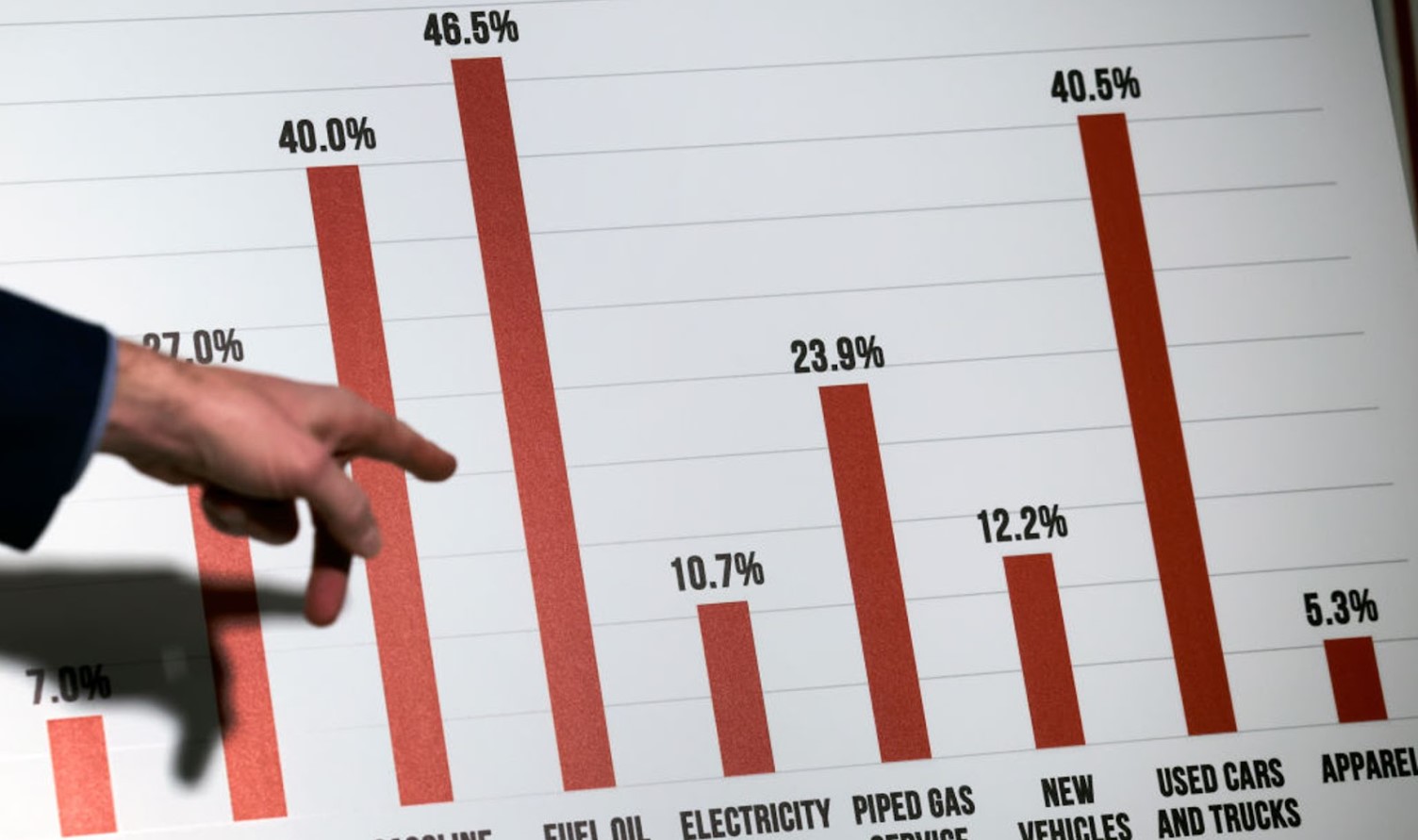Despite showing signs of easing last year, inflation has continued to inflict significant financial distress on Americans. A staggering 65% of the population has reported that this challenging period has significantly worsened their financial lives.
Research from the Federal Reserve also claims that over one in six Americans are grappling with the challenge of paying their monthly bills, a situation that underscores how far the nation’s residents are from financial stability.
The Fed Releases Household Report

Over the past several years, U.S. inflation has fluctuated between 4% and 8%, forcing many Americans into financial hardship as they attempt to keep up with ever-mounting bills.
In May, the Federal Reserve released its annual Economic Well-Being of U.S. Households report for 2023, which examined the financial well-being of families living in the United States.
Fed’s 11th Annual Survey of Household Economics and Decisionmaking

The results come from the Fed’s 11th annual Survey of Household Economics and Decisionmaking, a yearly report that examines the economic health of U.S. residents.
The data focuses on various areas, including income, housing, employment, banking and credit, student loans, retirement planning, childcare and Buy-Now pay-later usage, all of which give the Feds an understanding of how Americans are doing financially.
The Financial Well-Being of U.S. Residents

The Fed report revealed that over 70% of U.S. adults claim they were “doing okay” financially. This is slightly lower than the 2021 high of 78% but also much higher than the record low of 62% experienced in 2013.
When the survey participants were asked how inflation affected their financial lives, around 65% said “worse.” Of these people, 19% said their finances were “much worse.”
The Economic Situation Appears to be Improving in the U.S.

The economic situation in the United States is improving. New data suggests a resilient economy, noticeable growth in the job market and even remarkably strong employee pay gains, all of which increased spending last year.
However, not all U.S. residents feel the effects of an improved economy. Unfortunately, three years of higher-than-average inflation have left many Americans feeling financially drained.
Americans Forced to Skip Meals

The Fed report revealed that incomes in the U.S. experienced considerable growth in 2023, but spending also increased.
Budgets remained tight, and of those who participated in the study, more than half claimed they had no money left over after paying off their monthly expenses. Some lower-income Americans were forced to skip meals, and they could not afford medical care.
U.S. Residents Struggling to Pay Fuel Bills

According to the report, nearly 20% of Americans revealed they struggled to pay all of their bills during October 2023, which was the month before the survey was conducted.
The data provided by the Federal Reserve is a stark reminder of the financial challenges currently affecting the lives of millions of Amercians, which have only worsened due to the past few years of higher-than-average inflation.
Fed Governor Releases a Statement

“The [Survey of Household Economics and Decisionmaking] provides valuable insight into the financial conditions of American households,” Fed Governor Michelle Bowman said in a release accompanying the report.
He continued, “This perspective continues to help the Federal Reserve better understand how families are coping with the ongoing economic challenges they face.”
Perspectives on the Economy

All survey participants were questioned about the current state of their local economy. Slightly over 42% claimed it was “good” or “excellent,” a minor increase from 38% the previous year.
However, there has been a significant drop since 2019, a year in which nearly 65% of Americans thought their local economy was good or excellent.
Americans’ Opinions on the National Economy

When questioned about the national economy, Amercians had similar opinions to those expressed about the local economy. Around 22% of people believed it was good or excellent in 2022, which is a dramatic drop from the 50% noted in 2019.
The new report also revealed that around 63% of adults would be able to cover a $400 emergency payment with cash should an unfortunate incident occur.
Families With Young Children

The Fed report highlighted one particular group who has been experiencing a downward spiral in recent years: Parents with children who are under the age of 18.
Of those from this group who participated in the survey, 64% said they were “doing okay.” This number experienced a slight drop from 69% in 2022 and has dropped almost 10% from the 75% recorded in 2021.
Childcare Expenses Continue to Rise

For Americans with young children, childcare costs comprise a significant chunk of their monthly budget. Some report spending as much as 50% to 70% of their monthly housing payment on childcare.
The Fed report continues to give Americans a better understanding of how certain groups cope during times of financial hardship and provides state and national officials with an opportunity to focus on the problems that are currently affecting U.S. residents the most.








































